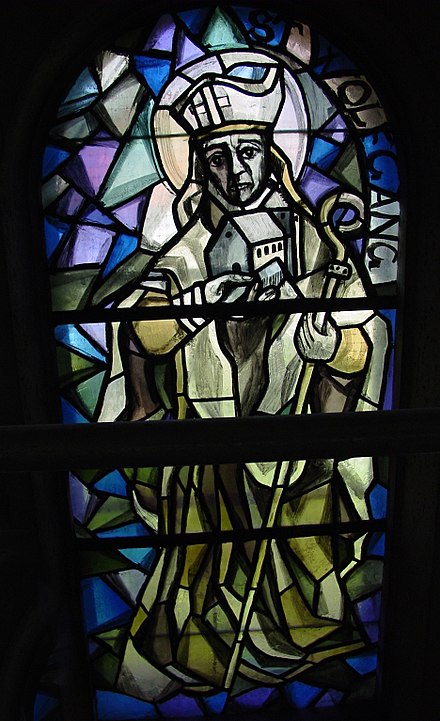St. Wolfgang was born around the year 934, in southwestern Germany. As a member of the nobility, he received private tutoring, and went on to study at the Monastery of Reichenau and Wurtzburg.
In 956, his school friend Henry was sent to lead the Archdiocese of Trier. Wolfgang, tired of monastic life, followed Henry, and took up a teaching position in the school at the cathedral. After Archbishop Henry died in 964, Wolfgang joined the Order of St. Benedict, and went to live in a monastery at Augsburg. Under his direction, the school flourished, and he was ordained in 968.
A few years later, Wolfgang was sent to evangelize the Magyars. He was quickly chosen to be the bishop of Ratisbon, but even as Bishop, Wolfgang lived as a monk, wearing his Benedictine habit and shunning worldly pleasures. He spent a great deal of time praying in solitude.
In his reforms, Wolfgang focused on monasticism and reviving religious life, on giving to the poor, and educating the children of the Duke, including the boy who would go on to become Holy Roman Emperor St. Henry II.
Although he enacted many reforms, Wolfgang struggled with the sheer size of his diocese, and eventually handed some of his parishes to the Bishop of nearby Prague. He ran into political conflicts as well, even leaving his diocese to live in a hermitage for a short while.
In 994, Wolfgang was in Pupping, Austria when he fell ill and died. He was canonized less than 100 years later, after many miracles and healings were reported at his tomb. He is a patron saint of stomach troubles, stroke and paralysis victims, and carpenters.
Start your day with Always Forward, our award-winning e-newsletter. Get this smart, handpicked selection of the day’s top news, analysis, and opinion, delivered to your inbox. Sign up absolutely free today!

